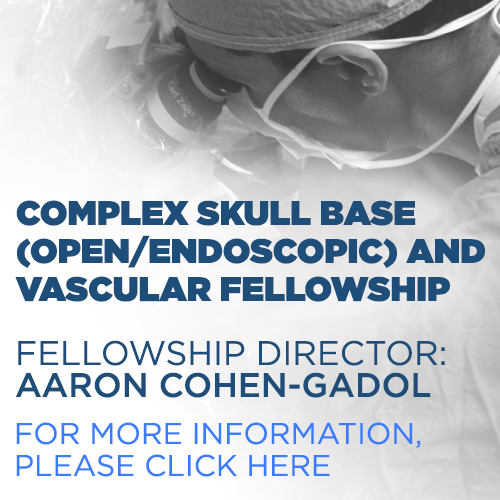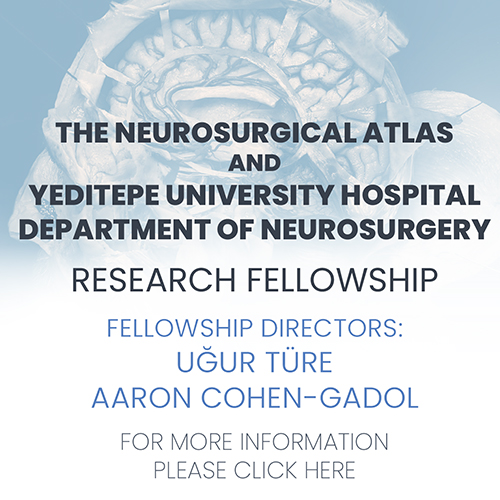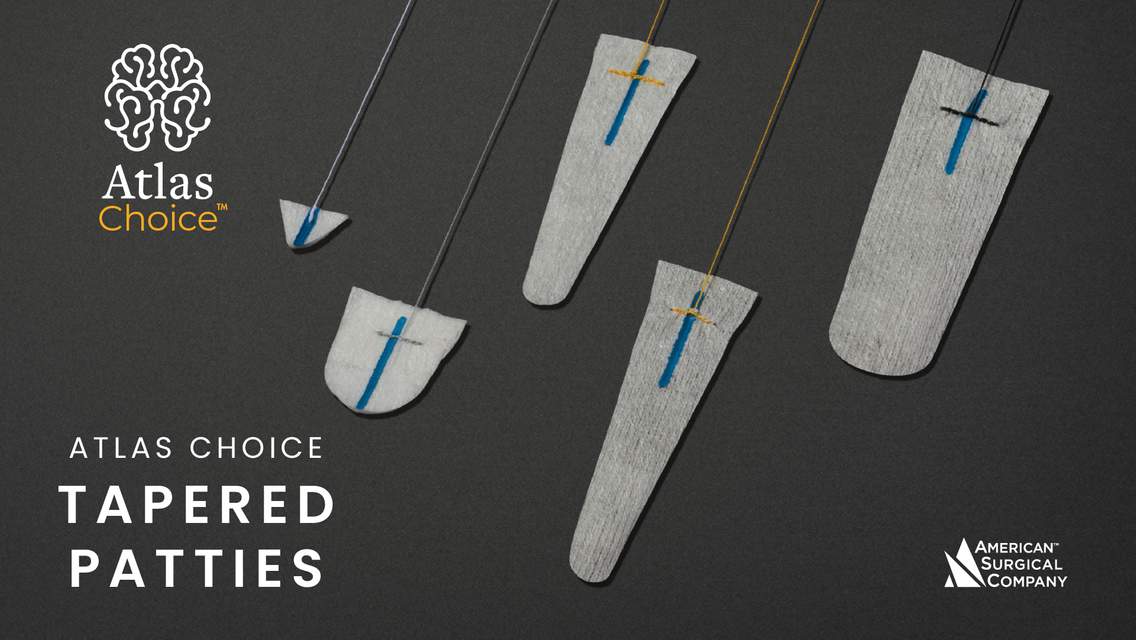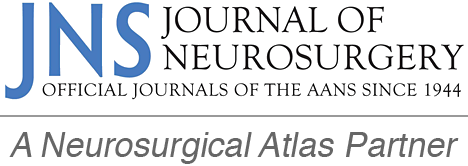Resilience in Neurosurgery
INTRODUCTION
Embarking on a neurosurgery residency and practicing as a neurosurgeon are not for the weak of heart. The immense demands of a residency and career in neurosurgery come with vast mental, physical, and emotional strains. Acknowledgement of the pressures on the individual is essential for appropriately managing a career that often includes maladaptive responses such as burnout.
STRESSORS OF A NEUROSURGERY RESIDENCY
Acknowledgement of stressors and burnout is an essential step toward developing appropriate coping and management mechanisms. In this article, I overview the major stressors that affect neurosurgical residents during daily patient care. To appropriately manage these stressors, the resident must develop resilience. Many of these principles apply to practicing neurosurgeons as well.
Categorically, these stressors include patient, technical, and team factors, time and efficiency demands, equipment problems, distractions, and personal problems.
Fatigue and Overload
The neurosurgery resident’s typical workweek often meets or exceeds the current 80-hour restriction, and in the past, the resident’s workweek often exceeded 120 hours. These extreme work hours impose harsh limits on “free time” and result in sleep deprivation.
The restriction on free time is often so extreme that residents are allowed no more than limited hours per day, which makes it impossible for them to enjoy normal hobbies and explore personal interests. Similarly, residents with a family experience harsh limitations on their family time. The neglect of self-care activities, personal development, and growth of personal relationships severely strain the resident’s mental endurance and contribute to burnout.
Sleep is critical for maintaining one’s cognitive abilities, mental soundness, and healthy interpersonal relationships. However, according to reported averages, residents often limit their sleep to 4 to 6 hours per night. Although this deprivation is tolerable in the short term, the years of residency impose chronic sleep deprivation, which can cause burnout. Short-term sleep deprivation has known consequences that include impulsivity, volatility, loss of emotional control, and reduced empathy. Caffeine becomes a staple for survival and maintaining a conscious state for most residents but can lead to further mood instability.
Graduating neurosurgery residents have accurately reported that the performance of residency requires an absence of the elements of normal life. The special events that enhance normal life—holiday parties, date nights, weddings, childbirths, and family reunions—all blur amid countless responsibilities at the hospital, and most are missed because of patient obligations.
The sad reality is that residency may be the introduction to this lifestyle, but graduation often offers no reprieve from this fate. Instead, responsibilities often increase once the resident becomes the attending, the person ultimately responsible for the care of every patient.
Demanding Performance
As with any sport or trade, training is essential for attaining peak performance. Neurosurgery imposes unique demands from the start and far more demanding training. The initial expectations for residents are utmost concentration, evolution, vigilance, good judgment, and correct execution of procedures. This high performance level must be summoned at a moment’s notice when the resident is called upon to meet needs in acute care scenarios.
These demands increase the strain of residency, particularly in the early years when novelty and uncertainty plague the resident and junior attending. Waking up each day with this expectation is exhausting, let alone maintaining these standards for 7 years and more when the resident becomes an attending.
Call
Call on a neurosurgery service represents the ultimate sacrifice from the neurosurgical resident while imparting paramount responsibility. Call intensifies nearly every type of stress and pressure mentioned here. It requires the highest physical, mental, and emotional capabilities of the neurosurgical resident for upward of 30 hours at a time. The young family of a junior attending also presents special demands, further complicating the exhausting call schedule.
Given the acuity of neurosurgical patients, the physician on call must be able to respond quickly to a vast number of neurosurgical emergencies any hour of the day. He or she must also approach this responsibility with appropriate and timely decision-making and in a professional manner.
This immense demand on the resident can be acutely tolerated, but chronic exposure to the demands of call fosters a jaded mindset. Requests for trivial or comparatively benign patient or nursing concerns become burdensome, and the resident may respond with a rude or aggressive comment. The resident may develop a feeling of persecution, and patient care responsibilities may become undesirable and eventually despised.
The chronic demands of call breed burnout through the perception of abuse combined with sleep deprivation. For most residents, call responsibilities eventually become routine and cognitively manageable, but the shear frequency of call often elicits a feeling of vulnerability and loss of motivation.
Sleep deprivation is an expected result of taking call. Night call for neurosurgery is particularly busy because many neurological conditions manifest with an acute symptom. The patient’s family members may not recognize the issue until they return home from work. In addition, performance of a thorough imaging evaluation, often with MR imaging, and transport to a tertiary center where neurosurgery services are available frequently cause a delay in patient presentation until the late evening or early morning. This situation causes backloading on any given call day, such that the late night hours are often the most intense and difficult of all, complicated by the exhaustion already being experienced by the resident.
Emotional and Intense Communications
Neurosurgical pathology poses an innate risk to a patient’s normal function that makes discussions about outcomes, consent for procedures, and management decisions innately intense. Patients and family members are forced into discussions about neurologic injuries and potential death, which intensifies emotions and brings many families to tears.
Neurosurgery residents are often forced to be the bearers of bad news. They may need to inform patients and families about the presence of a malignant brain tumor, severe traumatic brain injury, or ruptured aneurysm. Or, they might need to discuss the finality of a spinal cord injury or terminal intracerebral hemorrhage. Neurosurgeons routinely participate in these emotionally draining conversations. Breaking bad news becomes a regimented practice, and many residents emotionally separate from the situation in an attempt to maintain composure. This strategy provides emotional tolerance to these discussions but challenges the expression of empathy.
Inappropriate expectations from patients and their family are often particularly difficult to navigate. The family often requires multiple reiterations of the potentially devastating outcomes on the nervous system after surgery. Similarly, families can find it frustrating that neurosurgeons can feel reticent to continually provide assessments regarding patient outcomes at various steps in the preoperative and postoperative phases. Management of patient expectations is demanding on every member of the care team but is particularly difficult for the resident, who may be the primary contact for the family.
The many strenuous ethical situations encountered in the field of neurosurgery impose intense strain on the resident’s cognition and communication skills. Residents are expected to handle these situations with poise and act in accord with their own personal belief system. They also must shape the discussion so that it aligns with the recommendations of the attending surgeon. The daily reenactment of these situations can be exhausting and debilitating for residents, adding to their emotional burdens.
Poor Nutrition
The intense demands of residency affect residents’ eating habits. The typical nutritional recommendations are incompatible with a neurosurgical resident’s lifestyle. For starters, residents might be unable to eat at normal meal times. Instead, they might grab a few bites at inopportune times, such as before prerounding, between cases, or immediately before bedtime. They often consume cheap and readily available food, such as food from the vending machine, because of the limited time between non-negotiable responsibilities. Cheap food is typically loaded with carbohydrates, sugar, and fat, which precipitates intense swings in blood glucose levels and negatively affects mood and concentration.
Caffeinated beverages are also pervasive commodities for residents given their intense sleep deprivation. This need for caffeine to improve cognitive clarity comes at the cost of its diuretic effects, which, combined with the limited time for acquiring adequate hydration, results in grossly insufficient fluid intake and chronic dehydration.
This disregard for normal human nutritional requirements has serious effects that are both immediate and lifelong. As physicians, it is surprising that we would condone or even permit these behaviors in our peers or ourselves. There would clearly be an appropriate recommendation given to any patient who indulges in these bad habits.
Academic Demands
The cognitive demands on residents do not cease once they leave the operating room or finish a call session; instead, residents departs from one realm of cognitive demand only to enter another. They must meet the professional development and obligations imposed by the residency program, including academic requirements such as grand rounds, in-service exams, written boards, and mock oral boards, in addition to basic science or clinical research projects.
These demands require significant amounts of time for extramural study to cultivate mastery of neuroscience research concordant with clinical obligations. Although there is overlap between these two facets of neurosurgical education, each requires consistent and routine effort to achieve the desired results.
Control
Submission of one’s personal schedule and professional self-worth to the senior residents, fellows, and attendings who reign requires an immense sacrifice of control by each trainee. Each professional decision and clinical management order is critically analyzed by all seniors, with no shortage of corrective feedback and critique.
This loss of control is further emphasized by the financial pressures in residents’ personal lives. The restrictive salary paid to residents precludes appropriate accommodations for busy residents, such as house cleaning services, automotive care, childcare, or meal preparation. The salary is enough for minimalist living with very little “free money” for enjoyment or recreation, which further limits the control residents can wield over their own personal life.
Maladaptive Workplace Environment
Although the collegiality of the residency training environment has certainly improved over the last 2 decades, the hospital continues to be a hostile setting for residents. This is particularly true during the junior residency years, when residents must cope with the diverse responsibilities of call, dubious tasks that fall onto the resident based on seniority, and rigorous rounding duties. This torturous situation can be equated to a hazing of sorts, given that this lifestyle is endured by residents with the belief that things will get better and that this is only the elementary phase of a much brighter future.
The attendings who interact with residents often play a major role in sculpting a maladaptive culture. Neurosurgery has a long history of difficult personalities, and whether by the act of successive selection of these personalities or by cultivation through residency, a pervasive number of these people still participate in the training process. Working alongside these individuals can be stiflingly difficult.
Examples include the attending who forces nonclinical tasks on residents, equating them to slave labor, demanding that a resident “assist” with a case that the attending is otherwise completely capable of performing without an assistant, and forcing residents to attend untimely rounds or academic exercises. These situations convey the potential for abuse of the residents.
STRESSES OF A CAREER IN NEUROSURGERY
Although many residents dream of becoming an attending with the theory that the stressors and lifestyle of residency will improve, the stark reality is that the stressors often intensify for neurosurgeons in practice. Thankfully, this is not universally true given variations in practice styles.
The stressors often morph slightly to accommodate the changes in responsibility. For example, attending neurosurgeons are less affected by a lack of control over their lives than residents, but this stressor is replaced by a heightened burden of responsibility for the care of each patient, since the attendings are ultimately responsible for their patients’ treatment plans. Attendings often tackle each other for controversial clinical decisions during morbidity and mortality conferences, further increasing stress within the workplace.
Given that neurosurgery is so impacted by stress, achieving resilience in neurosurgery requires the thoughtful and active management of these stressors in productive ways. With successful management of stressors, both the neurosurgery resident and attending can expect to maintain a sense of purpose and achieve relative happiness in their careers.
MANAGEMENT STRATEGIES
As described above, the first major step for appropriately managing stress and developing resilience is recognizing and accepting one’s situation. One must be introspective and determine one’s coping mechanisms and maladaptive tendencies. The ability to achieve introspection to this effect requires immense self-awareness.
It is through appropriate introspection and self-awareness that we can learn self-regulatory methods suitable for our own psychological style. However, the resident or attending must be flexible and capable of using a variety of coping strategies across various psychological styles given the need to adapt to a great number of physical, emotional, and mental stressors.
Overcoming the stressors of neurosurgery require a reduction of the external demands (referred to as primary stress management) or improvement in coping mechanisms (secondary stress management).
Primary Stress Management
Identification of potential stressors that can be minimalized is the first logical step in primary stress management. This simple process should begin with optimizing the team to avoid unfamiliarity with intensive care unit and floor nursing protocols, the operating room environment, scrub nurse protocols, and consulting services etiquette.
Avoidance of miscommunication is also a critical step toward stress reduction. Miscommunication can be harmful to patient care and provoke immense distress for everyone involved. For example, briefing of the surgical team can provide clear direction in the operating room as a way to unite the team. Effective communication is discussed further in the Operating Room Etiquette chapter.
Hierarchical structure is imperative for the successful function of any health care organization, and when used appropriately, it can provide a substantial reduction in stress for the neurosurgeon. This structure can focus the neurosurgeon’s attention on the more appropriate tasks at hand and therefore minimize stress.
Secondary Stress Management
Secondary stress management strategies involve a perceptual increase in one’s ability to cope with stress. An example of this strategy is “preconditioning” through the use of simulation to permit exposure to a stressful experience, such as an operative complication, while allowing for trial and error without the consequence of negative patient outcomes.
Preconditioning can similarly be performed mentally through cognitive rehearsal of the demanding activity in preparation for actually performing this activity. This mental activity can reduce one’s anxiety about the task at hand.
Discussion Between Residents
It can be helpful to discuss stressors with those who are in a similar stage, that is, co-residents. These episodes provide an opportunity to debrief and discuss stressful encounters. Such discussions can highlight the “silver linings” for stressful situations or pressures.
Discussion Between Residents and Attendings
Discussions among residents are excellent guidance opportunities for attendings to provide education on stress management and coping strategies learned from experience. The focus of these discussions should go beyond simply the events themselves and instead seek to elucidate the resident’s emotional response. The emotional responses should also be normalized, because the attending has likely experienced similar situations. It can provide valuable reassurance that it is possible to survive and flourish despite the stress.
An attending-initiated discussion of motivational factors for pursuing a career in neurosurgery can facilitate refocusing on what truly inspired each resident to pursue this career with full knowledge and fair warning of the impending stress. Key facets of this discussion should include privileges that we have as neurosurgeons in that patients entrust the integrity of their nervous system to our hands, the essential role of the neurosurgery resident in the success of the program and the care team, the immense impact that we have on patients and families through direct patient care activities, and how residents are empowered with the tools to challenge the current intellectual borders in neurosurgery to advance beyond the capability and knowledge of their teachers.
By reframing the residents’ experiences, the attending can provide valuable insight into their situations and conflicts. With a greater goal in mind, the day-to-day activities, although stress provoking, do not hold the same cognitive weight.
BURNOUT
The inadequate management of stress results in a state of exhaustion on mental, physical, and emotional states. These stressors are not uncommon for neurosurgeons to experience, especially during the residency years. Particular scenarios that are considered risk factors for burnout include the following:
- Working with distressed or difficult individuals
- Being strongly motivated to work with people but hindered by administrative tasks
- Having too much responsibility
- Perfectionism
- Mismatch between personal goals and the work environment
- Feeling guilty about personal needs
- Lacking capacity to achieve a “good-enough” state of success
- Working with people who feel entitled to assist with their problems
- Activities that provide novelty, variety, or diversion in daily life
Neurosurgeons and residents typically demonstrate and devote their lives to these risk factors, indirectly, through the captivating profession of neurosurgery. These factors contribute to perpetual fatigue, apathy, loss of motivation, and eventual jadedness toward one’s own contributions to his or her professional goals.
Ultimately, living in a state of burnout results in clinical depression and a multitude of cognitive and interpersonal ailments, including the following:
- Cognitive dysfunction
- Blunted performance
- Physical breakdown
- Depersonalization
- Emotional exhaustion
- Dissemination of emotional distress
An individual who is experiencing burnout does not achieve rejuvenation through standard recovery techniques. The key to avoiding the deleterious effects of burnout is the achievement of resilience, despite the demanding environment of neurosurgery. The positive effects of a career coach cannot be overestimated.
Contributor: Benjamin K. Hendricks, MD
References
Fallon RO, Sotile WM, Sotile MO. From burnout to resilience. The Resilient Physician Newsletter. January 2015. www.TheResilientPhysician.com.
Gill J. Burnout: a growing threat in ministry. Hum Dev 1980;1:21–25.
Simonds G, Sotile W. Building Resilience in Neurosurgical Residents: A Primer. B Wright Publishing, Bothell, WA; 2015.
Urich K. Burned out. Sci Am Mind 2006;17:28–33.
Please login to post a comment.













